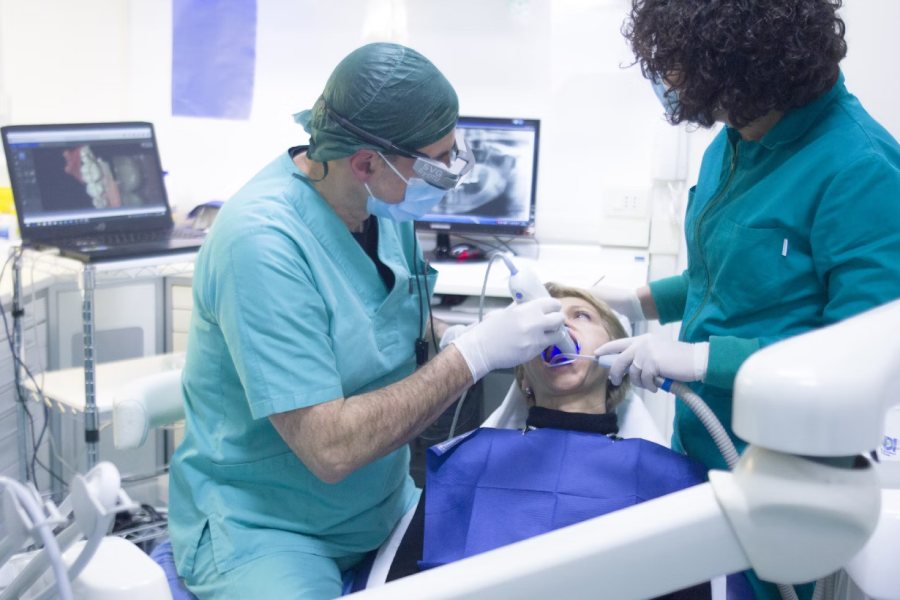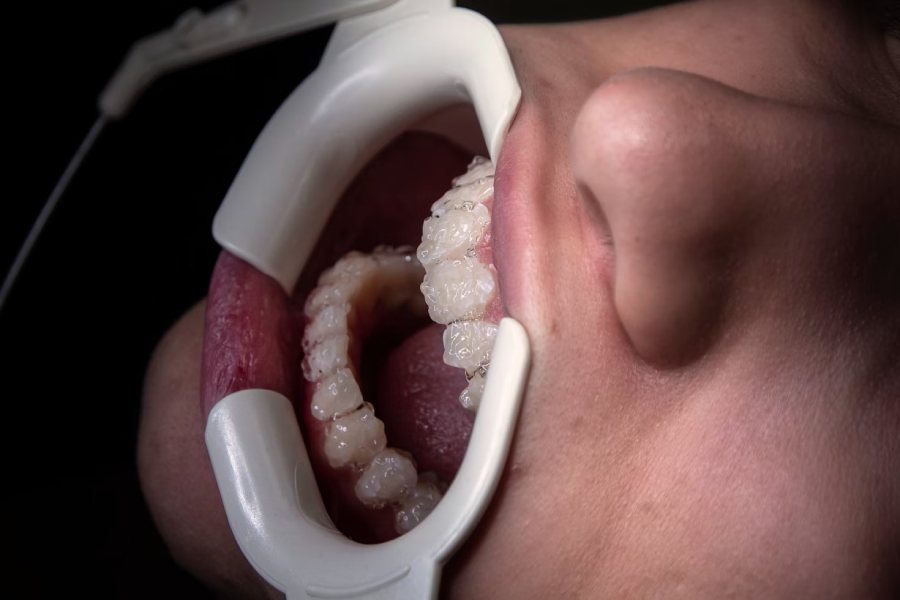Getting a tooth extracted can be a bit of an ordeal. Not only do you have to deal with the discomfort of the procedure itself, but you also have to follow a strict aftercare routine to ensure proper healing.
One of the most important things to avoid after a tooth extraction is carbonated drinks. But why exactly is this the case?
Dental Implants: A Modern Solution for Missing Teeth

Dental implants are a popular and effective way to replace missing teeth. They are surgically inserted into the jawbone. It fuses with the bone and provides a strong foundation for a replacement tooth or teeth. The difference is regular dentures can slip or become loose, dental implants are permanent and feel and function just like natural teeth.
What are dental implants made of?
Dental implants are made of titanium, a biocompatible metal that is compatible with the human body. The implant itself is a small screw-like post that is surgically inserted in the jawbone.
Once the implant has healed and integrated with the bone, an abutment is attached to the implant. The abutment is a connector piece that holds the replacement tooth, a crowning, bridges, or dentures.
Who is a candidate for dental implants?
Dental implants are a good option for most adults who are in good overall health and have healthy gums. They are a particularly good option for people who:
- Have lost one or more teeth
- Are not satisfied with their dentures or bridges
- Want a permanent and natural-looking solution for missing teeth
- Have enough jawbone to support the implants
What are the benefits of dental implants?

There are many benefits to dental implants, including:
- Improvs your overall appearance: Dental implants look and feel just like natural teeth, so you can smile, eat, and speak with confidence.
- Improved oral health: Dental implants help to preserve jawbone and prevent bone loss. They also make it easier to keep your teeth clean, which can help to prevent gum disease.
- Improved speech and chewing: Dental implants are stable and secure, so you can eat and speak without worrying about your teeth slipping or moving.
- Improved Your Self-esteem: A perfect dental implant boosts your self-esteem and confidence.
What is the procedure for getting dental implants?
The process of getting dental implants typically involves several steps:
- Consultation: During the consultation, the dentist will discuss your dental history, examine your mouth, and take X-rays to determine if you are a candidate for implants.
- Placement of the implants: The implants are surgically inserted into the jawbone. This is usually done under local anesthesia or sedation.
- Healing: The implants need time to heal and integrate with the jawbone. This process can take several months.
- Placement of the abutments and restoration: Once the implants have healed, the abutments are attached to the implants. The abutments connect the implants to the replacement tooth or teeth.
What are the risks of dental implants?
As with any surgery, there are some risks associated with dental implants, such as:
- Infection
- Bleeding
- Damage to nerves or blood vessels
- Rejection of the implants
However, these risks are relatively rare and can be minimized by choosing an experienced and qualified dentist.
why can’t you drink carbonated drinks after tooth extraction

There are several reasons why carbonated drinks are a no-no after tooth extraction. Let’s delve into the 8 key reasons:
The Dangers of Carbonation
- Dislodging the Blood Clot: After a tooth extraction, a blood clot forms in the socket where the tooth once was. This clot is essential for healing, as it protects the underlying bone and tissue from infection. Carbonated drinks, with their fizzy bubbles, can dislodge this clot, leading to a painful condition called dry socket. A dry socket is characterized by intense pain, delayed healing, and a foul odor from the extraction site.
- Increased Inflammation: Carbonated drinks are often acidic, which can irritate the extraction site and cause inflammation. Inflammation can delay healing and make you more susceptible to infection.
- Sugar Rush and Crash: Many carbonated drinks are loaded with sugar, which can lead to a blood sugar spike and subsequent crashes. This can interfere with your body’s ability to heal and make you feel lousy overall.
- Dehydration: Carbonated drinks are diuretics, meaning they cause you to lose fluids. This can lead to dehydration, which can further slow down healing and make you feel tired and sluggish.
- Pain and Discomfort: The carbonation in fizzy drinks can create a stinging sensation on the extraction site, causing unnecessary pain and discomfort.
- Difficulty Maintaining Hygiene: Drinking carbonated drinks through a straw is often recommended after tooth extraction to avoid dislodging the blood clot. However, even without a straw, the carbonation can make it difficult to rinse your mouth effectively, which can increase your risk of infection.
- Interference with Medication: Some medications, such as antibiotics, can interact with carbonated drinks. This can reduce the effectiveness of the medication and put you at risk of complications.
- Delayed Healing: By avoiding carbonated drinks, you’re giving your body the best chance to heal quickly and comfortably.
Alternatives to Carbonated Drinks
So, what can you drink instead of carbonated drinks after tooth extraction? Here are some healthy and hydrating options:
- Water: Plain water is always the best choice. It’s hydrating, sugar-free, and won’t irritate your extraction site.
- Milk: Milk is a good source of calcium and protein, which are both important for healing. Choose low-fat or skim milk to avoid added sugar.
- Unsweetened fruit juices: Diluted unsweetened fruit juices can provide some vitamins and minerals. However, limit your intake due to their natural sugar content.
- Herbal teas: Herbal teas are soothing and hydrating. Choose caffeine-free options to avoid dehydration.
Remember: It’s important to follow your dentist’s specific instructions after a tooth extraction. They will be able to advise you on what to eat and drink, how to care for your extraction site, and when you can resume your normal activities.
Conclusion

Avoiding carbonated drinks after tooth extraction is an important part of the healing process. By following your dentist’s instructions and choosing healthy alternatives, you can help ensure a smooth and comfortable recovery.
I hope this blog has been helpful. If you have any questions, please feel free to leave a comment below.
Additional:
- What Causes Canker Sores In Kids?
- Can I Eat Pizza After Tooth Extraction?
- How To Eat A Hamburger With Dentures?
- Industry News SoftSmile Announce Their Partnership With Dental Axess


